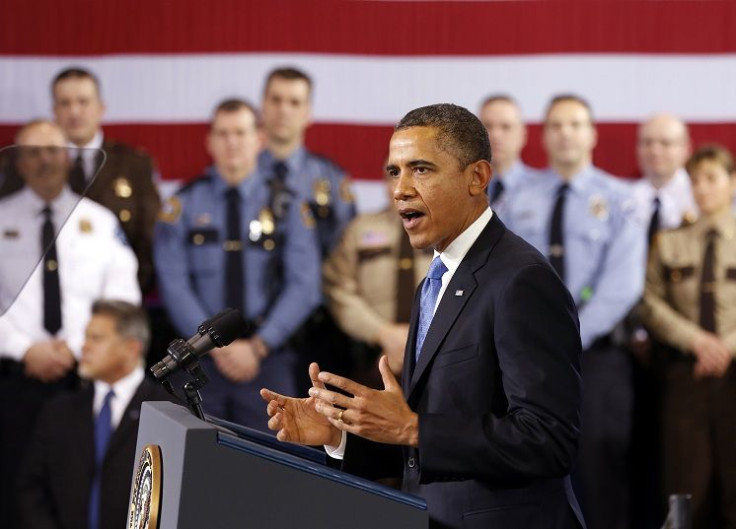2013 State of the Union Address: Obama Will Outline Four Priorities

President Barack Obama will deliver his fifth State of the Union address to Congress Tuesday night to outline his goals and priorities moving into his second term. The annual address to the nation comes amid a slow but steady economic recovery, a persistently high unemployment rate and looming across-the-board cuts to federal discretionary spending set to begin March 1.
The speech will be followed by the official Republican response from Florida Sen. Marco Rubio, who also replied last year. But maverick Sen. Rand Paul, R-Ky., perhaps looking to upstage a rival 2016 presidential hopeful, will offer his own response on behalf of the tea party movement.
The president will likely continue his theme of growing economic disparity that Democrats say is squeezing the American middle class. Obama will call on Congress to support "investments" (i.e. spending) in four specific areas: education, manufacturing, infrastructure and renewable energy. White House officials say any spending proposals would be offset by cuts elsewhere or new revenue to avoid adding to the country’s $16 trillion in debt.
“Our single biggest remaining challenge is to get our economy in a place where the middle class is feeling less squeezed, where incomes sustain families,” a senior administration official with access to a draft of the speech making its rounds in the inner circle of the White House told The Washington Post on Saturday.
Republicans, of course, disagree and say the No. 1 priority for economic recovery and growth is to cut spending to what they say is a bloated federal bureaucracy. Their concerns won't be allayed by the White House’s assurances that any additional spending on the four initiatives – which will likely include programs they successfully blocked in the president’s first term – will be funded by tax increases.
“We will advance proposals aimed at producing results in areas like education, health care, innovation and job growth,” House Majority Leader Eric Cantor, R-Va., said in a speech last week that offers a preview of how Republicans will respond after Obama’s address. “Our solutions will be based on the conservative principles of self-reliance, faith in the individual, trust in the family and accountability in government. Our goal – to ensure every American has a fair shot at earning their success and achieving their dreams.”
Cantor's statement underscores what conservatives see as the solution – community self-reliance – and Republicans will do everything possible to prevent Obama from introducing new spending on these four stated initiatives.
Meanwhile, Obama’s Gallup approval rating stood at 53 percent on Sunday, nine basis points above his disapproval rating. The poll index from RealClearPolitics has Obama rating at 51 percent, or 7.5 points above his disapproval rating.
Here is a summary of Obama’s four previous addresses:
2012
The president used the address as a stump speech for his re-election, and he hit a populist tone on the theme of income inequality and unfair tax policy. Citing Warren Buffett, he declared that a billionaire should “pay at least as much” as a secretary – hitting on a contentious subject. Conservatives view billionaires as paying much more than secretaries, because they do in quantitative terms, while liberals note the disparity in tax rates.
2011
This was Obama’s “Sputnik moment” speech where he focused on the need to invest in research and development, specifically naming clean energy and biomedical research. The president also talked about reforming the standards-based educational system of No Child Left Behind. The Jan. 25 speech had a somber bipartisan tone because it closely followed the Jan. 8 shooting of U.S. Rep. Gabrielle Giffords and 18 others in Arizona.
2010
Obama used the speech to talk of unfinished business. The recession had ended, but unemployment had only just dipped under 10 percent just three weeks before this address. He also called on Congress to revisit health insurance reform and talked about the “elephant in the room” of the growing national debt. His popularity was down with some disapproval ratings above 50 percent.
2009
This speech, weeks after Obama took office, came amid an economic collapse caused by the financial services industry’s shenanigans in derivatives trading and the subprime mortgage lending market. The speech was heavy with recovery language. “We will rebuild, we will recover, and the United States of America will emerge stronger than before.” Obama was on the defense on the $700 billion bank bailout that started right before he took office.
© Copyright IBTimes 2024. All rights reserved.












